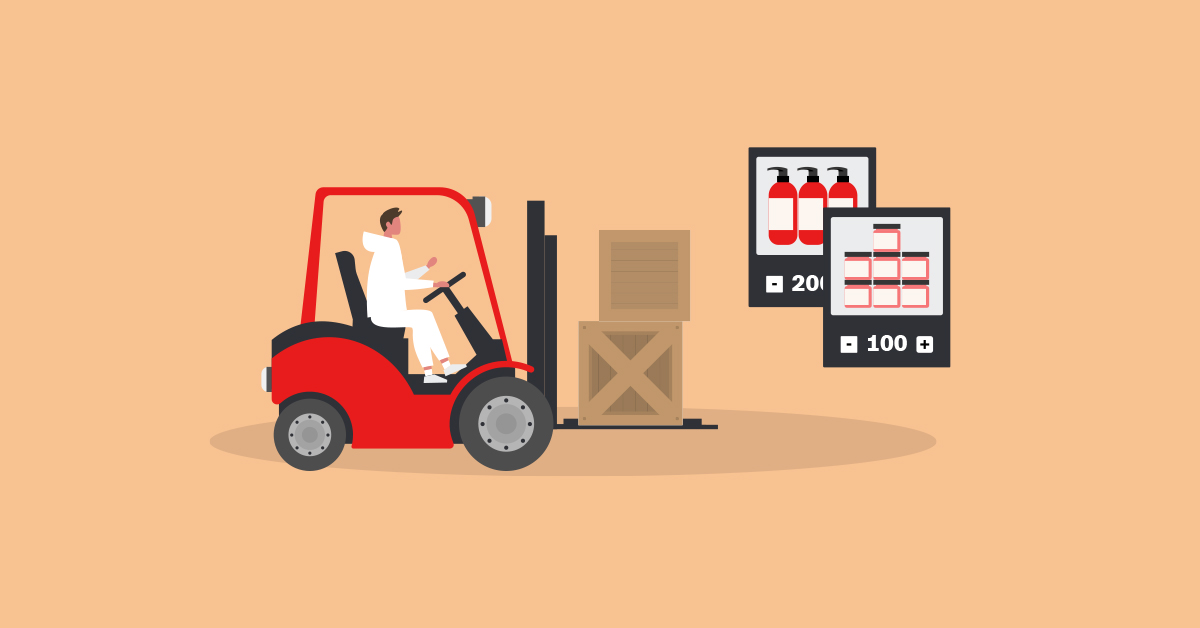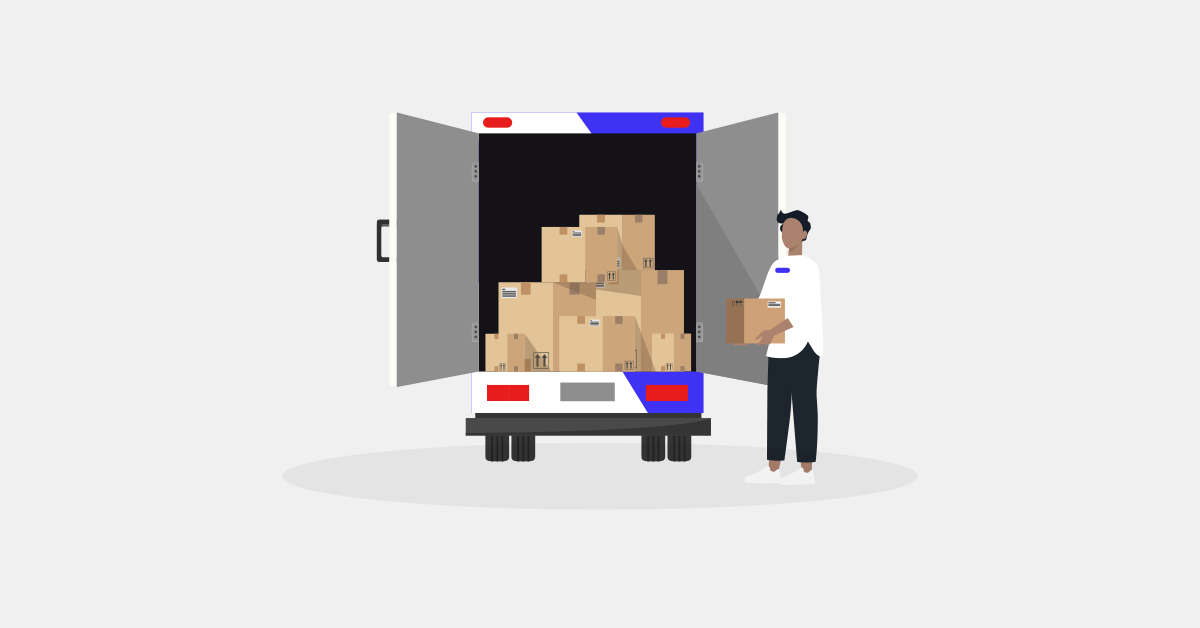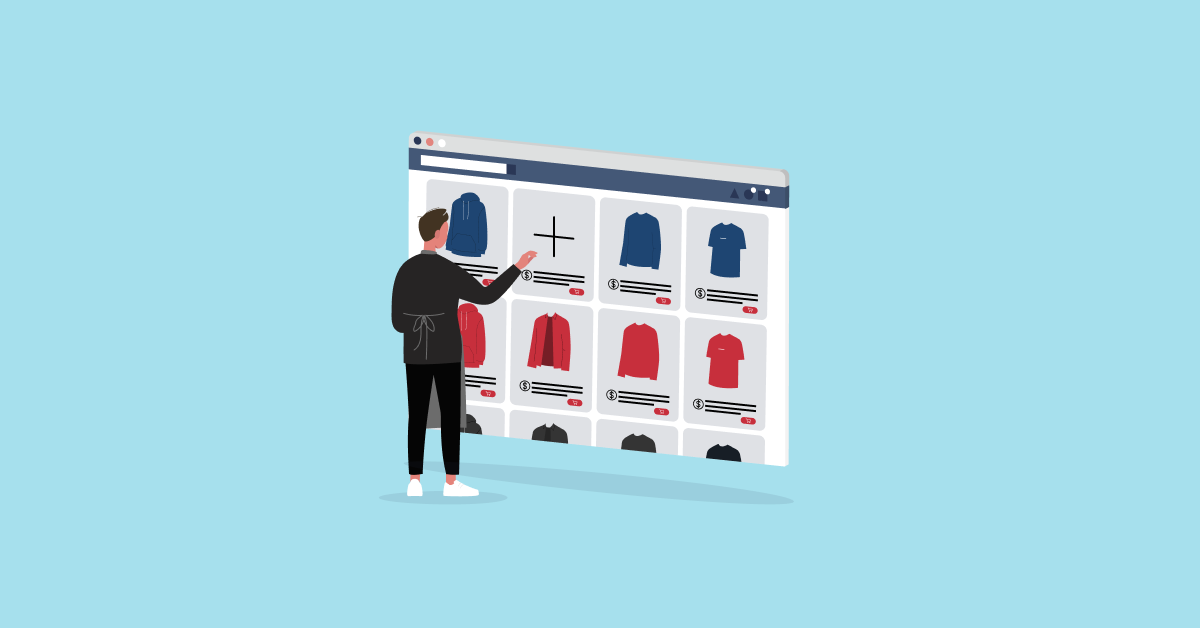
Wholesale is the business of buying goods in large quantities from manufacturers and selling to retailers. When you start a retail business, you’re going to need products to sell. And, buying wholesale is normally going to be the way to go.
Buying wholesale can be confusing at first. So, we’re sharing our tips on how to find wholesalers, getting the best wholesale prices, and any additional factors you need to know.
- What is wholesale?
- How does the wholesale process work?
- How do I price wholesale items for resale?
- What different types of wholesalers are there?
- Where to buy wholesale products?
- How to choose a wholesaler?
- How to buy in bulk for wholesale
- Additional factors to consider
Looking for a better way to manage your retail business? Watch a demo of Lightspeed to discover how our platform can help your business grow.Level up your retail management system
What is wholesale?

When you buy merchandise from a wholesaler, you’re buying from the middleman between your retail store and the manufacturer. A wholesale purchase is almost always made in bulk, and because of that, you pay a discounted price for the purchase.
After you buy products from a wholesaler, you can then sell them at your own store at a higher price to make a profit. This higher price is called the retail price. And, it’s what customers will pay when they shop in your store.
The difference between the retail and the wholesale price is called the margin. Basically, it’s the amount of profit that a retailer gets from a sale.
The retail price typically varies between businesses, and there are a few different pricing strategies that can be used to determine the best retail price for you. Once you do this, you can then determine your gross profit.
How does the wholesale process work?

The wholesale process, typically, looks like this:
- The manufacturer creates the products.
- The distributor facilitates sales between the manufacturer and the wholesaler and, sometimes, between the manufacturer and retailers.
- The wholesaler works with the distributor to buy in bulk.
- The retailer buys smaller quantities of the items from the wholesaler (or distributor) to sell individual goods to consumers.
How do I price wholesale items for resale?
Whenever you’re buying wholesale, you’ll need to consider what price you’re thinking of selling your goods for so you can work out how much profit you will make. You can use this formula as a guide:
Gross Profit = Revenue – Cost of Goods Sold (COGS)
- Revenue is equal to the retail price you charge to your customers.
- COGS is a high-level metric that covers all of the variable costs associated with producing and selling goods. Fixed costs are not accounted for in gross profit calculations.
If you’re buying from a wholesaler instead of producing a product yourself, you can estimate that your COGS is the price you pay for a product. You can also estimate that your gross profit is the amount of money you make off of a sale.
Retailers, typically, raise (or markup) the price of goods they buy wholesale so that they can make a profit. For example, a retailer may buy a t-shirt at a wholesale price of £2, and then sell the t-shirt in their store for £10. In this case, the markup is £8. And, as a result, the gross profit of that sale is £8.
You should keep this in mind when buying inventory for your store. If your wholesaler’s prices are too high, it will affect the overall profitability of your business.
If you ever find yourself owning too much inventory at once, you’ll likely have to find someplace to put it. We’ve covered different ways retailers can manage surplus inventory here.
What different types of wholesalers are there?
Wholesalers aren’t one-size-fits-all. There are a range of wholesale businesses that work with retailers (and, sometimes, consumers).
The type of wholesaler you work with will depend on the specific items you’re buying in bulk, the retail niche you want to fit in, the kinds of relationships you are able to build, and the wholesale ordering technology you want to work with.
Here are the types of wholesalers you can work with:
- Manufacturers: Some, but not all, manufacturers also act as wholesalers. As there is no middleman, buying directly from a manufacturer may give you lower wholesale prices. However, buying directly isn’t always available as an option and, even when it is, it isn’t always the most convenient.
- Retail wholesalers: Retail wholesalers sell products in bulk to retailers at a slight markup from manufacturers. Buying through a retail wholesaler means you can purchase wholesale items from more than one manufacturer.
- Merchant wholesalers: As opposed to retail wholesalers, merchant wholesalers sell to both retailers and retail customers. They generally have lower minimum order sizes in light of this, and are your direct competition while also being suppliers.
- B2B wholesale marketplaces: Wholesalers and brands come together on B2B wholesale marketplaces like NuORDER, where retailers can browse and order products much more efficiently than the traditional email-and-purchase-order format.
Where to buy wholesale products

Your local chamber of commerce is often a good place to start. If you’re in touch with other business owners, crowdsourcing from your network is another great way to get info on which wholesalers you should look into and which ones you should avoid.
If you want to find trustworthy wholesalers online, you should try a B2B wholesale marketplace. B2B marketplaces are a great place to start as you’ll be able to browse catalogues online. However, make sure it has strict standards with the brands it works with.
How to choose a wholesaler
Once you’ve compiled a list of wholesalers you’re interested in, read reviews from other retailers who have worked with them. This will give you a good sense of whether or not they’re worth reaching out to.
After you’ve narrowed down your list to your top choices, you’ll need to make sure they’re a good fit for your business. Here is a list of questions you can start with when choosing a wholesaler:
What merchandise do you sell?
If you’re selling a wide range of items, or if you plan on keeping your store very specific, you have to choose wholesale partners that carry the products you need.
You can work with as many different wholesalers as you need to in order to get the inventory you want. However, make sure that the kind of merchandise these wholesalers offer aligns with the kind of store you run, so you’re always on-brand.
What is your price point?
You’re selling the merchandise you bought from the wholesaler in order to make a profit. When choosing a supplier, make sure you can get pricing that allows you to hit your desired profit margins.
Is the wholesaler reliable?
Don’t work with people you can’t rely on. Wholesalers who deliver merchandise late, not at all, or consistently show up with damaged goods aren’t good for business.
Do they have great customer service?
Make sure any company you work with has a reliable customer service team you can easily reach when needed. If you have to jump through hoops to have your questions answered, or their customer service is never around when you need them, you may need a new wholesale partner.
How much do they know about the product?
The wholesale partner you choose should have a strong understanding of the products they sell. This has two benefits to you as a retailer. The first is that you can share this product knowledge with your customer. The second is that it ensures your wholesale partner is clued up – and passionate – about the quality of the product they’re selling.
Wholesalers who can’t answer your questions about their product may be aware their merchandise isn’t the best, or a lack of knowledge may mean they just don’t care. Either way, a good business partner will be able to answer your questions..
Can they help you drop ship?
If you sell products online, it might be worth asking if your wholesalers can help you drop ship. Drop shipping is a fulfilment method where the wholesaler stores your inventory and handles your shipping.
When someone places an order from your eCommerce store, you pass on their order information to your wholesaler, and they ship it directly to your customer. Drop shipping is a great option if you want to save on storage and shipping costs, but it’s a much more hands-off way of doing business.
If you decide to drop ship, make sure you ask your wholesaler to send you samples of every single product you sell to ensure that the quality is up to your standards.
Will you be buying wholesale items domestically or internationally?
A domestic supply chain can mean less disruption. But, not all wholesale items are available from domestic manufacturers or suppliers, and prices can be higher.
Meanwhile, while you’ll have a wider (and more affordable) selection from international suppliers, you never know when you’ll run into manufacturing or shipping delays.
Rather than relying too heavily on one or the other, it may be best to ensure you’re sourcing from a mix of international and domestic wholesalers.
How to buy in bulk for wholesale
The general process for buying bulk items for wholesale is:
- Find a wholesaler: check out your local commerce centre, wholesaler sites online, and B2B marketplaces.
- Contact the wholesaler: you may be able to skip—or at least streamline—this step if you’re using a B2B marketplace. Otherwise, reach out to the wholesaler over email and introduce yourself and your business.
- Show your wholesaler your business licences, if needed: only merchant wholesalers will sell to the end user. Retail wholesalers may ask for proof you’re a legitimate business.
- Sign an agreement with the wholesaler: examine the terms carefully; have a solicitor look them over if needed.
- Place an order with the wholesaler: the wholesaler will let you know how they prefer you to order. A B2B wholesaler marketplace will be the most convenient. Keep the minimum order quantity in mind—if you’re not ready to place an order that large, ask the wholesaler if you can order a sample first.
- Determine your desired price: some manufacturers set prices for their goods—Apple, for example, requires resellers to price their goods similarly. Check your agreement for details.
- Place more orders as needed.
What are some additional factors to consider when buying wholesale?
Find your reorder points
In addition to figuring out which items to buy, you’ll need to calculate how much you need to buy. Want to know how much you’ll need? Use this free calculator to find your reorder point for each item.
Once you have your reorder points, you can use Lightspeed Retail to help you keep track of which items are at, or below, their desired inventory levels. Once you’ve put your reorder points into your inventory listings, running the Reorder List report will let you know which items are low on stock and how much you need to reorder.
It’s okay to negotiate
Don’t be afraid to negotiate the price of goods when you need to. Let the supplier know if your sales are doing well and how much business they can expect from you in order to get a better deal. Be honest and fair in your negotiations to form a longstanding relationship with your wholesalers.
Organise storage space
Before your wholesale order arrives, you’ll also need to have an organised place to store it (unless you’re drop shipping). Having a storage room with adequate shelving makes finding different parts of your inventory that much easier.
Keeping things labelled will make sure you don’t lose track of anything. If your inventory exceeds the confines of your storage room, consider upgrading to a warehouse equipped with industrial equipment meant to handle large-scale fulfilment needs.
Getting the right products for your store
Figuring out how to buy wholesale to resell merchandise is an important step in increasing your profits and inventory. That’s why it’s important to take the time to do the maths, to make sure you’re buying and selling merchandise at prices that will work for you and your business.
You can use your POS system to help you crunch the numbers. Work with wholesalers who sell high-quality products, are reliable, and can support your growth. By asking the right questions and having the numbers figured out, you’ll be well on your way to making smarter decisions to grow your business.
Managing your inventory and ensuring you have enough stock has never been easier with Lightspeed ePOS for Retail. Want to learn more about how Lightspeed can help you manage, optimise, and scale your business with ease? Watch a free demo today.

News you care about. Tips you can use.
Everything your business needs to grow, delivered straight to your inbox.


